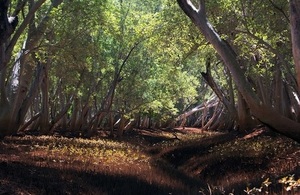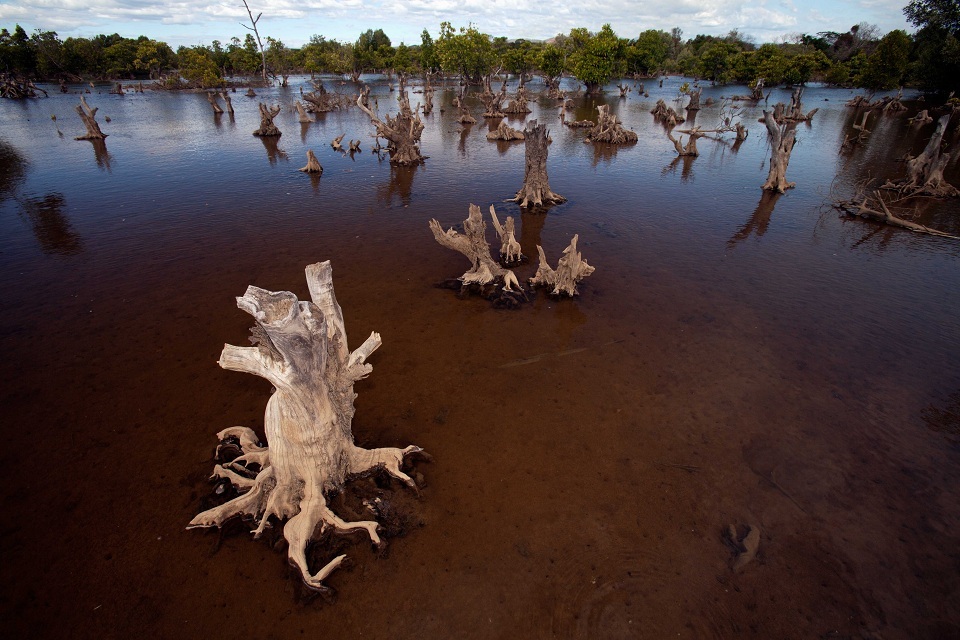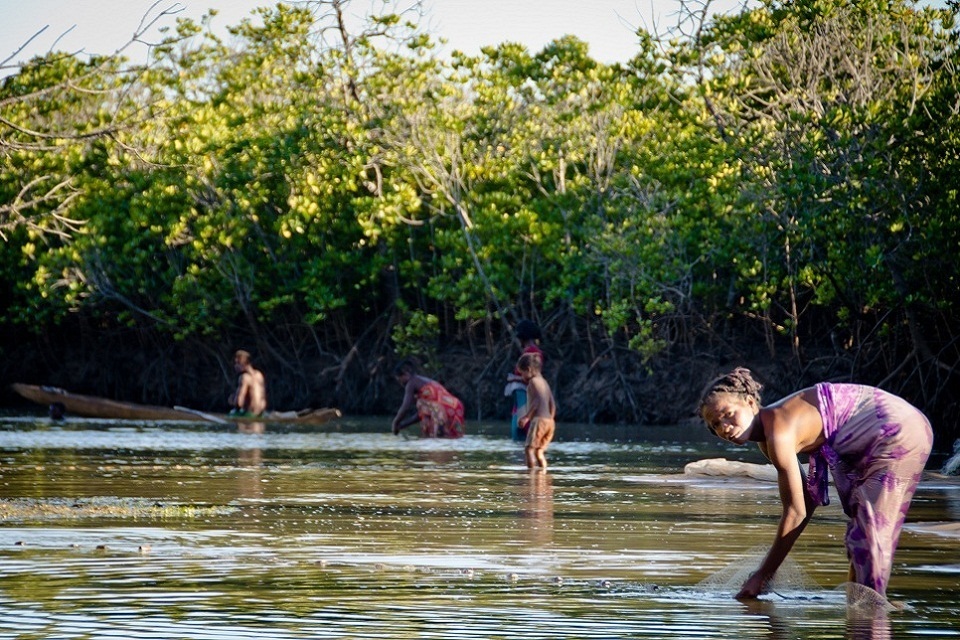Case study: Darwin Initiative main round project
Darwin project 19-016: Conserving mangrove forests and alleviating poverty in Madagascar

A dense mangrove forest. Credit: Blue Ventures-Garth Cripps
Generating income from mangroves in Madagascar
Coastal communities in western Madagascar will generate income from the sale of carbon credits, charcoal and timber through sustainable mangrove forest management. This will enable them to improve their own situations and protect mangrove forests.
Benefits for people and wildlife
Mangrove forests provide many benefits to both wildlife and people. Millions of coastal people in Madagascar depend on mangroves to provide coastal protection from storms and erosion, water filtration, building materials and fuel. They also support shrimp and crab fisheries which are crucial to the livelihoods and food security of communities living on the coast.
But mangroves are being lost at a rate of 1-2% per year, equal to or exceeding rates of loss in upland terrestrial forests. Their precious goods and services will be lost completely if deforestation and degradation are not urgently addressed.

Open water with only mangrove stumps showing above the water. Credit: Blue Ventures-Garth Cripps
Releasing the value of ‘blue carbon’
Mangroves also have a significant amount of carbon stored in them, known as ‘blue carbon’ which has a value on international carbon markets.
Darwin project 19-016 run by Blue Ventures is helping local communities in Madagascar to quantify and access this valuable source of income. The project will fund community-led mangrove management and help safeguard the fisheries that mangroves support.
If the project can quantify the amount of carbon in Madagascar’s mangroves it will ensure the proper valuation of blue carbon credits which will then be turned into income for local communities.

Local people fishing in the mangroves. Credit: Blue Ventures- Brian Jones
Engaging with local partners
The project is working closely with community associations and local and regional authorities to:
- Ensure partner communities have legal mangrove management rights
- Establish forest management plans, including sustainable harvesting practices, so communities can sustainably profit from mangrove wood;
- Provide training in resource governance and enforcement
- Support communities to carry out mangrove reforestation
- Develop fuelwood and timber plantations to help meet local market demand from alternative and sustainable sources
- Develop sustainable fishing management